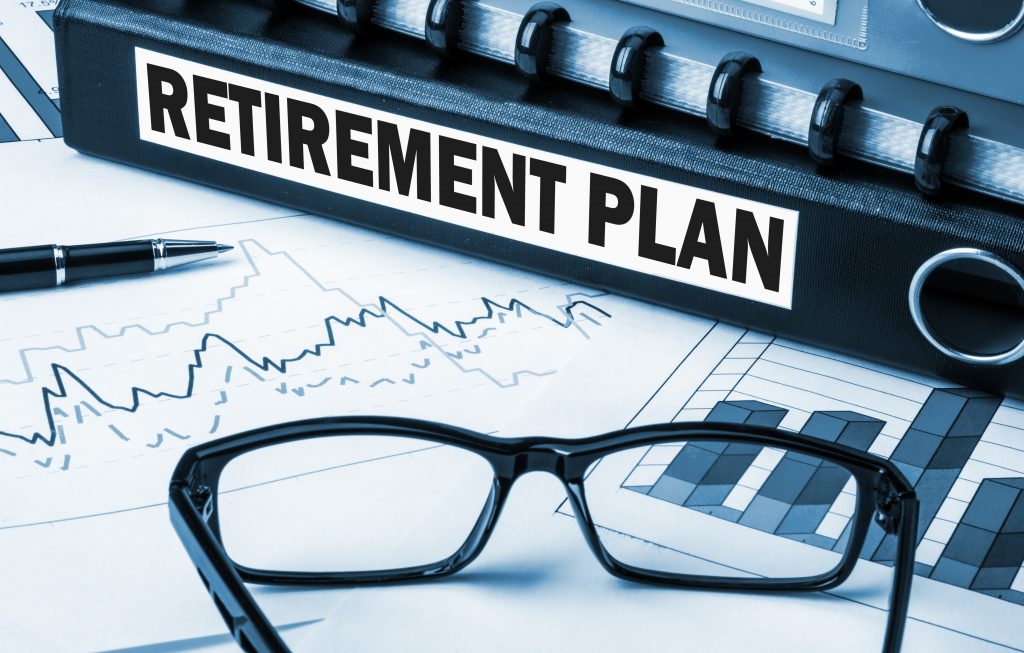
After years of being in service and saving for your future, you can at long last glimpse retirement on your horizon. Do you foresee yourself doing volunteering work, trying part-time jobs, or leisurely traveling?
Preparing for your retirement begins by planning your target and gauging the time you have to fulfill them. Once you accomplish those, you need to determine the suitable retirement savings that can grow your money to finance your future.
Moreover, it’s beneficial to assess your existing budget to help you recognize unnecessary items you can reduce or remove. In this case, you can implement a variety of strategies to help you save money for the future. Regardless of your age, here are 11 easy ways to plan for your retirement.
- Identify Your Timeframe
The key to a healthy retirement strategy depends on your present age and your projected retirement age. When you have a lengthier period between now and retirement, your portfolio can sustain greater risk. For instance, you have around 30-plus years before your expected retirement age. Then, you could place a bulk of your assets in high-risk investments like stocks.
Yes, you’ll more or less experience fluctuations in the market. However, stocks have generally exceeded the profitability of other products, like bonds, after a long time–roughly close to 10 years.
On the other hand, if you’re older and don’t have enough time left before retiring, your retirement investment should center on maintaining your income and capital. Hence, placing your assets in bonds is sensible. Though the yields aren’t the same as stocks, it’s less fragile and can give you profits throughout your retirement.
Keep in mind that a 60-year-old who’s preparing for retirement in the next couple of years doesn’t have similar obstacles as a young person who just started in the workforce. Thus, remember to readjust your portfolio, depending on your timeframe.
- Understand Your Employer’s Pension Plan
Does your employer offer conventional pension plans? If so, verify if the plan they offer covers you. Also, it’s important that you understand how the policy works. If possible, request a personal benefit statement and check how much it’s worth.
Suppose you’re planning to change employers. Clarify if that’ll affect your pension benefit. Or, in cases you have a previous employer, verify your benefits as mentioned earlier with them. Moreover, if you’re married, ask if your spouse’s pension plan will benefit you?
When planning for your retirement, it’s important that you learn about these matters.
- Analyze the Amount You Need

How much do you need to fund your cost of living in the future? To answer this, you’ll need to estimate the amount you need for retirement. A common way to tackle this is to strive for 8% of your present salary.
In case you’re earning $100,000 annually, your target retirement income should be roughly $80,000. You can also approach it by basing your figure on your spending amount and not your earnings.
Suppose your spending amount today is approximately equal to the amount you’ll spend during your retirement. You may no longer have mortgage expenses by that time. However, you’ll most likely gain new expenditures such as extra health care payments and travel costs.
- Diversify Your Portfolio
Surprisingly, others stay away from stocks to minimize risk. It’s essential to realize, however, that the growth that stockholding offer is vital at this time of their lives. It’s best to explore a combination of products such as bonds, stocks, mutual funds, and other assets that’ll suit your time frame, risk tolerance, and cash flow needs.
A properly balanced portfolio can help you endure setbacks and possibly produce the income you require to cover your retirement spending. Other than the products mentioned above, you’ll likewise discover that others are investing their money in gold and silver. If you want to explore how you can do this, you may consult experts such as those from the Oxford Gold Group.
- Reduce Your Debts
Do you currently have mortgage payments? If so, see to it that you can pay it before retiring. Moreover, to lessen credit card payables, consider using cash if you’re buying something significant.
Another aspect to consider is to bargain for lesser rates, especially if you have car insurance. When you reduce your existing liabilities and debts, you’ll be lowering the amount you’ll spend paying interest, giving you room for more savings.
- Consider Transferring Residence
Of course, where you’ll reside after retirement affects your budget. Suppose your home sits in a luxurious location. In that case, you can consider transferring to an apartment or condominium with lower tax fees.
By doing so, you can potentially reduce your expenses so you can settle your other payables. Or, you can look into living in the same town but in a mid-sized home that you can financially afford.
- Assess Future Health Expenses
For people retiring at age 65 or up, Medicare will pay for most of their regular healthcare expenses. However, as you get older and with the premium fees of healthcare, you’ll possibly require non-routine healthcare procedures. Examples of these are cancer treatment, surgery, neurological care, trauma, or some assistance that’ll need ambulance or emergency services.
To preserve your retirement fund, look into purchasing long-term care insurance to cover costs, like home health aides. When you invest in coverage today, the premiums you’ll be paying will be lower than if you wait for several years. Most of all, if you sign-up while your young, you’ll evade being rejected by insurers.
- Evaluate Your Possible Retirement Earnings
In general, your retirement money will come from your savings, salaries, and investment accounts. When estimating your foreseeable income, you should likewise include sources like employer pension benefits and Social Security.
To ensure your savings will survive a lifetime, a good rule to follow is to allocate 4% of your annual portfolio for retirement. For instance, you have in your pocket a $1 million retirement investment. Is your pension, savings, Social Security, plus $40,000 from your portfolio enough to sustain your preferred retirement?
- Initiate a Proper Estate Plan
Aside from investment products, a crucial element to include in your retirement strategy is estate planning. This component will involve the expertise of various professionals like accountants and lawyers. Another aspect that plays a significant role in estate planning is life insurance.
When you possess life insurance coverage and an appropriate estate plan, see to it that your loved ones won’t go through ordeals after your passing. Furthermore, there will be proper distribution of your assets that’s in the process of your choosing. With a correctly outlined plan, your family will avoid the costly and exhaustive probate process.
- Don’t Spend Extra Income
Do you work a part-time time job aside from your full-time one? When you earn extra cash or get a raise, double your saving percentage; allocate roughly half of the net income to your retirement budget.
Yes, it’s tempting to spend your salary performance bonus, Christmas bonus, or a tax refund on a quick out-of-town vacation. However, it’s best to save that extra cash and not spend it on a whim. You’ll most likely hear the expression ‘pay yourself first.’ Always motivate yourself to automatically keep retirement contributions every month without having to decide about it.
You can pamper yourself to an ice cream from a local shop, enjoy the sunset, go for a walk in your neighborhood, or purchase that book you’ve been eyeing in the library. Essentially, opt for something small, and you’ll be sure to make giant leaps to meet your retirement objectives.
- Begin Saving Money Today
It’s always never too late to begin investing and saving your income. Steps like cooking your meals, cutting your grocery budget, or taking fewer vacations can bring more dollars into your retirement fund every year. There are many strategies that can help you stretch your budget and save for your future.
Final Thoughts
For the most part, many people now recognize the significance of retirement planning. Not many employees in the private industry can depend on their companies that provide pension plans.
When creating your retirement plan, don’t forget to keep a balance between realistic return projections and your preferred standard of living. An excellent way to settle this scenario is for you to concentrate on developing a versatile portfolio. This way, you can adjust your investments on a regular basis to comply with the dynamic market and uphold your retirement goals.
Also, remember to discuss with your significant other about your retirement plan so that you’re on the same page when it comes to any financial changes. As couples talk about matters, such as buying a house or a car, it’s always a healthy habit to talk about financial issues as well.
Lastly, while the points above can guide you to the right and sensible path, you’ll still require more information. Therefore, consult your bank, employer, lawyer, or financial adviser. Don’t hesitate to voice out your questions. And, ensure that you understand the answers provided by the experts.
